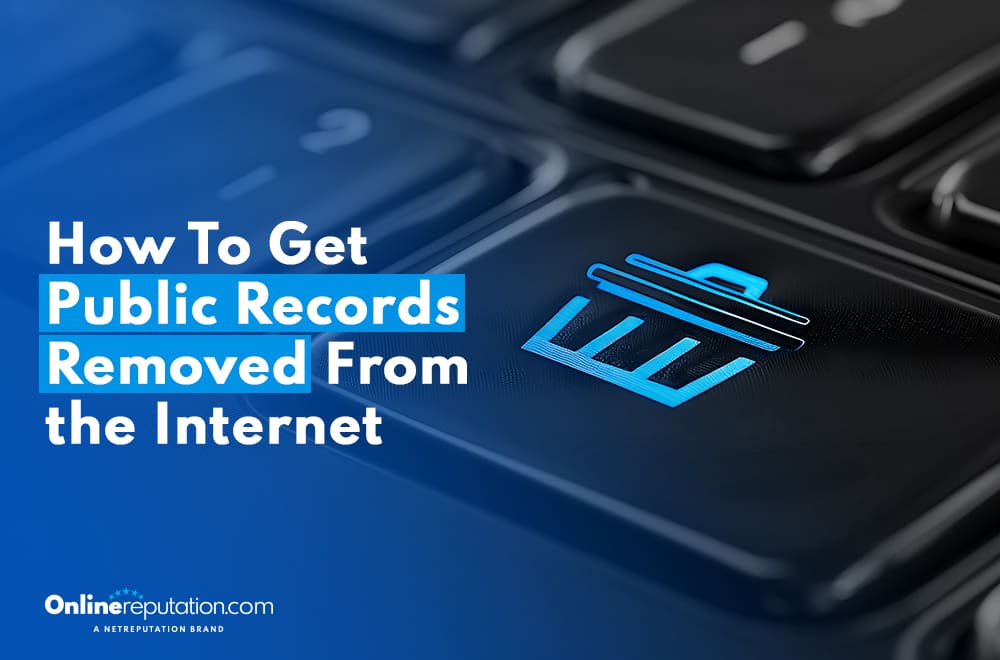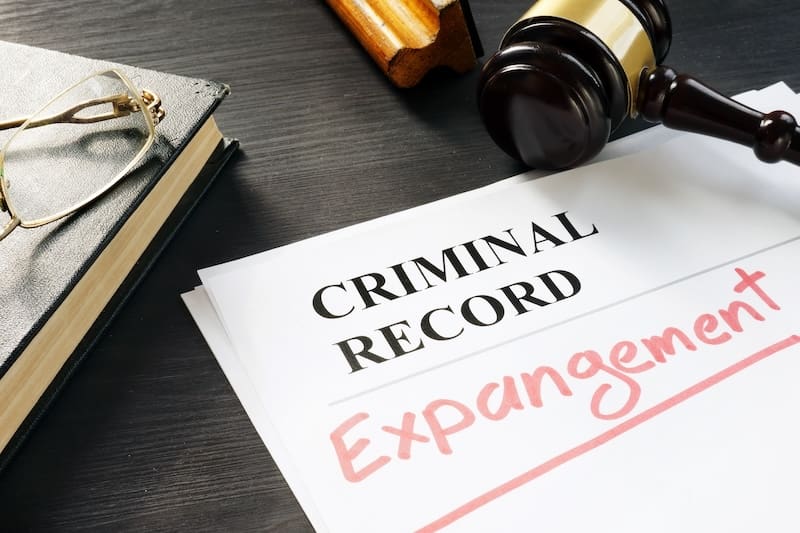
This guide will show you how to remove a court case from public record so you can protect your online reputation.
We’ve all made mistakes in our lives. Sometimes, those mistakes include getting arrested or doing something that lands us in court.
If you’ve ever been arrested or sued, it’s surprising to learn that your court records are relatively easy to find online. Nearly any legal documents with your name in them may be on public records databases, data broker sites, or other types of Google search results.
That leaves many people wondering the following: How can you remove court records to protect your privacy and online reputation?
Our guide below will explore proven strategies to help you find public court records and remove them from web search results.
To speak with a content removal expert immediately, get in touch with our team by calling 844-230-3803 .
What are Public Court Records?
Court records are any records generated from a court case or other legal action. In the United States, court records may include the following:
- Arrest reports
- Mugshots or booking photos
- Tax liens
- Divorce records
- Dockets
- Court minutes
- Jury records
- Lawsuits or legal claims
- Settlements or judgments
- Criminal records, including both felony and misdemeanor case records
The legal system produces millions of records each year. Every court record is filed with the local county clerk or a similar organization and entered into the public record.
The Importance of Knowing How To Get Public Records Removed Online
Court records — the legal information used and stored by courts nationwide — may contain private information like your Social Security number, address, and full name. If criminals were to gain access to this information, they could compromise your privacy or safety.
These are the biggest concerns when it comes to having your court record information available online.
Privacy Risks
Criminals often use the information from public records, including court and other legal documents, to create false identities using your name. With those false credentials, they may be able to open fraudulent financial accounts, file taxes in your name, or commit many other types of fraud. Identity fraud costs individuals and business owners billions of dollars in losses each year.
Reputational Risks
Identity fraud is not the only risk associated with public court records being available online. Your reputation may also be at risk. Several factors may contribute to this risk, including what information is available and the websites where it’s posted.
This is particularly concerning if you’re applying for a home or vehicle loan, a business loan, or some other financial service. Many financial firms use the web to locate information about you to determine if you are a reasonable risk.
The same applies to school applications, job applications, and even interactions on dating sites. Whether you realize it or not, people use search engines like Google to locate information about you.
Any negative information, such as criminal records, can damage your reputation. After all, people immediately form opinions based on the information they find in Google search results.
Can you afford to miss out on new opportunities in your personal or professional life because embarrassing court records, including old court cases, are online?
If the answer is no, online reputation management firms can help you remove court and other public records. Speak with an expert today by calling 844-230-3803 for a free consultation.
Why Are My Court Records Available Online?
Have you ever searched for your name in Google or one of the other popular search engines? If you have, it’s shocking to see the information that appears in search results. How did your information and images get on the web anyway? There are three primary sources for public court records:
Public Records Databases
Court records — including arrest reports, criminal records, and mugshots — are posted by government offices based on a legal obligation that these agencies make records available to the public. These obligations are sometimes referred to as open public records laws.
Typically, civil records and criminal records are collected by federal, state, or local agencies to comply with Freedom of Information Act laws. The general public gains access once civil or criminal court records become part of the public record.
Basically, any time you deal with a government agency, official records of that interaction may become part of the public record.
People Search Sites
Once public court records and other information are posted to the web by government agencies, they tend to spread quickly. The culprits in this viral spread of sensitive information are people search websites, sometimes called data brokers or aggregators. Data brokers use automated tools to scrape publicly available records from government databases and then republish this information on their websites.
There are hundreds of these third-party sites, and they help users locate information about someone they meet in person or online. However, they can also be used by people with bad intentions to gather personal information about people and use it for cybercrimes.
Mugshot Sites
Mugshot sites act like data brokers by reposting public information — like criminal, court, or online arrest records — found on government databases.
These websites have become incredibly popular. Many started by posting celebrity mugshots, then expanded their offerings to include criminal charges of every average person arrested or detained by law enforcement officials.
Some websites just post mugshots, while others include a person’s criminal history, arrest and court records, or personal information. To make matters worse, if one site gets your booking photos, they may suddenly appear on multiple websites.
These sites get so much traffic daily that your mugshot or arrest details may appear at the top of search engine results. They rank highly due to the tremendous traffic they receive.
Imagine if a prospective employer or loan officer stumbles across these embarrassing records. Wouldn’t you want that information removed?
Contact us today at 844-230-3803 to discuss our content removal services and protect your privacy online.
Public Court Records Covered Under State or Federal Law
Generally speaking, a court record is produced any time you deal with a court for a legal action. This applies not only to local courts but also to state and federal courts.
Under state or federal law, records produced by legal cases are available to the public. Public knowledge of a court order or case record is mandated because this information is in the public interest.
Public databases catalog millions of court documents from local, state, and federal authorities. These databases make it all too easy to reveal a court record that is embarrassing, outdated, or no longer reflective of who you are when conducting a legal search.
How to Get Public Records Removed From Google
Now that we’ve learned what a court record is and how it becomes available to the public, it’s time to dive right into getting court records removed. There are five strategies to remove public records from the internet. Let’s go over them.
1. Speak to Your Local Clerk of Courts
The first strategy involves visiting your county clerk’s office. You may make a removal request here, but only under specific circumstances.
Getting certain types of information removed by the county clerk’s office may be a challenge. In most cases, the clerk will not honor a removal request unless there is a valid court order.
2. Opt Out of Data Broker Sites
You can prevent data brokers from sharing your records once and for all by completing an opt-out request on each site that has your info.
Most sites have some form of opt-out process. Follow the directions on each website until your records are no longer visible in search results.
Generally speaking, it may take several days or weeks to remove information after an opt-out request is made. Many websites update their records on a schedule. Ultimately, though, your information should no longer be in Google’s search results after some time.
3. File for Public Records Expungement
Expungement is the court-ordered process of removing a person’s arrest report, criminal records, or mugshot images from public records. An expungement is a form of setting aside a criminal conviction so that it no longer exists.
It is up to the court to determine whether or not public court case files and records can be removed from public databases. An attorney may be needed to assist you with filing for expungement.
4. Hire Legal Professionals
If you have difficulty removing your court records from publicly accessible databases, an experienced lawyer can help. Attorneys familiar with records laws often have several strategies they can employ, including:
- Sending Digital Millennium Copyright Act (DMCA) takedown notices.
- Filing a legal court order based on state expungement law. For example, this may be possible if you have not been found guilty of a crime or if the charges were dropped.
- Addressing website Terms of Service (ToS) violations.
- Providing legally compelling reasons why your personal information must be removed to protect your privacy and safety.
Many attorneys offer free consultations, helping you understand the process behind legal removal requests. The attorney-client relationship is a valuable tool as you work to restore or preserve your internet reputation.
5. Take Advantage of Online Reputation Management Firms
If a Google search turns up embarrassing details about your past, you may have tried a wide range of options to get the information removed. Even a single court case available in search results can devastate your current and future goals.
Online reputation management firms can help. These content removal professionals use search engine optimization (SEO) strategies, legal requests, and content suppression to manipulate search results based on your name. Reputation management teams remove content and replace it with content showcasing your best attributes.
Your new content will rank highly, and the fresh, positive content will effectively push down any negative details you can’t remove through conventional court records removal methods.
Reputation management is a set of processes designed to influence search results in your favor. With a strong reputation, you’re ready to succeed personally and professionally.
Don’t let an old court case damage what you’ve worked so hard to achieve — speak to a reputation management company today to learn how they can restore your reputation on the internet.
Contact OnlineReputation to Learn More
When it comes to how to get public records removed from online searches, there’s a lot to know.
OnlineReputation is a leader in the online reputation management (ORM) services industry. As the best brand reputation management company, our team has worked with thousands of clients, helping them remove embarrassing internet records from search results, including arrest reports, mugshots, and criminal records.
Web search results can make or break your online reputation. With our help, you can protect the reputation that means so much in the digital environment. We remove personal information using a proven process that eliminates court records from the internet.
To learn more about our wide range of online reputation services, including powerful content removal and content suppression solutions, contact our team at 844-230-3803 for a free reputation analysis.
You might also like
Are Mugshots Public Domain in the United States?
This guide will show you how to remove a court case from public record so you can protect your online …






